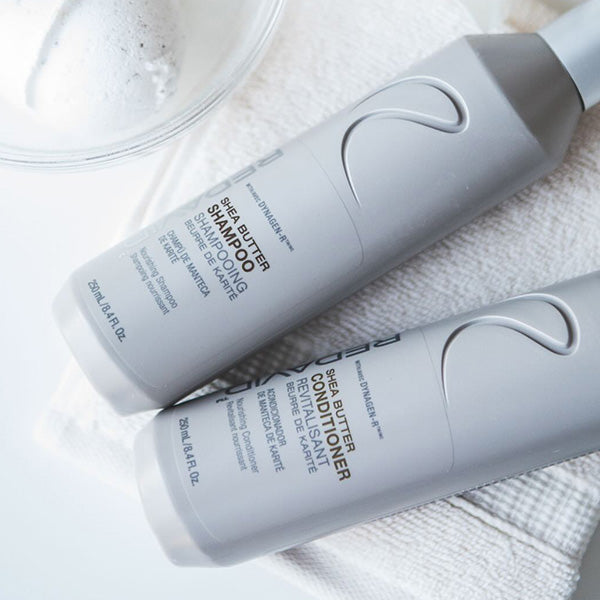The Impact of Stress on Hair: How to Recognize and Combat Stress-Related Hair Issues
Stress is an unavoidable part of life, but its effects can extend far beyond your mental and emotional well-being—it can also take a significant toll on your hair. From hair loss to changes in texture, stress can manifest in various ways that impact the health and appearance of your hair. Understanding the connection between stress and hair issues is crucial for identifying and addressing these problems effectively. Here’s how to recognize stress-related hair issues and strategies to combat them.
How Stress Affects Hair
-
Telogen Effluvium:
- What It Is: Telogen effluvium is a common condition where significant stress pushes large numbers of hair follicles into the resting (telogen) phase. This results in increased hair shedding and noticeable thinning.
- Symptoms: You may notice more hair falling out than usual, especially when washing or brushing your hair. This type of hair loss usually occurs a few months after a stressful event.
-
Alopecia Areata:
- What It Is: Alopecia areata is an autoimmune condition that can be triggered by severe stress, leading to patchy hair loss on the scalp or other parts of the body.
- Symptoms: Sudden, round patches of hair loss on the scalp or other areas, often with no redness or scaling. The hair loss can occur rapidly, within a matter of days.
-
Trichotillomania:
- What It Is: Trichotillomania is a psychological condition where individuals feel compelled to pull out their hair, often as a response to stress or anxiety.
- Symptoms: Noticeable bald patches or thinning areas on the scalp or other parts of the body, with broken hair of varying lengths.
-
Hair Texture Changes:
- What It Is: Stress can also cause changes in hair texture, making it dry, brittle, and more prone to breakage. The hair may lose its natural shine and become more difficult to manage.
- Symptoms: Hair feels rough or coarse, lacks elasticity, and may break easily, leading to an overall appearance of dullness and poor health.
How to Recognize Stress-Related Hair Issues
-
Increased Shedding:
- Observation: Pay attention to how much hair is falling out during washing, brushing, or styling. If you notice an unusual amount of hair shedding, stress could be a contributing factor.
-
Changes in Hair Appearance:
- Observation: Look for sudden changes in hair texture, such as increased dryness, brittleness, or loss of shine. These changes could indicate that stress is affecting your hair’s health.
-
Patchy Hair Loss:
- Observation: Check for any bald patches or areas of thinning on the scalp. If you notice sudden or patchy hair loss, it’s important to consult a healthcare professional, as this could be a sign of alopecia areata or another stress-related condition.
-
Compulsive Hair Pulling:
- Observation: If you find yourself frequently pulling out your hair, especially in response to stress, anxiety, or boredom, you may be dealing with trichotillomania. This condition requires professional support to manage.
Strategies to Combat Stress-Related Hair Issues
-
Stress Management Techniques:
- Mindfulness and Meditation: Practice mindfulness, meditation, or deep breathing exercises to help reduce stress levels. These techniques can help calm the mind and alleviate the physical symptoms of stress.
- Regular Exercise: Engage in regular physical activity, which helps to reduce stress and improve overall health. Exercise increases endorphins, which can help counteract the negative effects of stress on the body.
-
Healthy Diet and Hydration:
- Nutrient-Rich Foods: Maintain a balanced diet rich in vitamins and minerals essential for hair health, such as biotin, zinc, iron, and omega-3 fatty acids. These nutrients support hair growth and strength.
- Hydration: Drink plenty of water to keep your body and hair hydrated. Proper hydration is crucial for maintaining healthy hair and scalp.
-
Gentle Hair Care:
- Avoid Harsh Treatments: Limit the use of harsh chemical treatments, excessive heat styling, and tight hairstyles, all of which can exacerbate stress-related hair issues.
- Use Gentle Products: Choose sulfate-free shampoos and conditioners that are gentle on the hair and scalp. Look for products designed to hydrate and strengthen hair.
-
Professional Help:
- Consult a Dermatologist: If you’re experiencing significant hair loss or other stress-related hair issues, consult a dermatologist or healthcare professional. They can provide a proper diagnosis and recommend appropriate treatments.
- Therapy and Counseling: If stress or anxiety is leading to conditions like trichotillomania or contributing to hair loss, consider seeking therapy or counseling. Cognitive-behavioral therapy (CBT) can be particularly effective in managing stress and related behaviors.
-
Hair Supplements:
- Consider Supplements: If your diet lacks certain nutrients, consider taking hair supplements that contain biotin, keratin, and other hair-boosting ingredients. However, consult with a healthcare professional before starting any new supplements.
-
Scalp Massages:
- Improve Circulation: Regular scalp massages can help improve blood flow to the hair follicles, promoting healthy hair growth and relieving stress. Use a nourishing oil like coconut or jojoba oil for added benefits.
-
Establish a Relaxing Routine:
- Nighttime Routine: Develop a relaxing bedtime routine to improve sleep quality, as poor sleep can exacerbate stress and its effects on hair. Consider activities like reading, taking a warm bath, or practicing yoga before bed.
Stress can have a significant impact on your hair, leading to issues like hair loss, changes in texture, and even conditions like trichotillomania. By recognizing the signs of stress-related hair problems and implementing effective stress management strategies, you can help protect your hair from the damaging effects of stress. Remember, healthy hair starts with a healthy mind and body, so taking care of your overall well-being is key to maintaining beautiful, resilient hair. If you’re struggling with stress-related hair issues, don’t hesitate to seek professional help to get the support and care you need.














